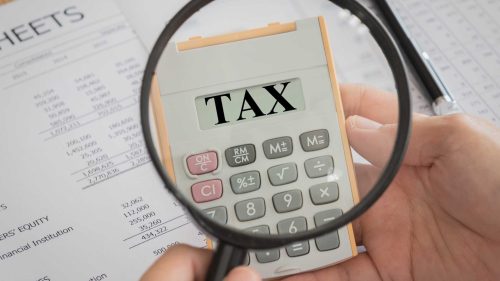Table of Contents
Whether or not you are responsible for children, the Working Tax Credit is a payment from HM Revenue and Customs to top up the earnings of people who are low-paid and live in low-income households. In this blog post, we’ll discuss what working tax credit is and how it works. We will also provide a guide on how to claim it and how to maximize its benefits. So whether you’re looking for ways to make extra money or need assistance with your taxes, this blog post is for you.
What is Working Tax Credit?
 Universal Credit is replacing the Working Tax Credit. Working people on a low income may qualify for the Working Tax Credit, which is money provided to boost their earnings. Whether you’re employed or self-employed, it makes no difference. When calculating your entitlement to most other means-tested benefits, such as Housing Benefits, the Working Tax Credit counts as income.
Universal Credit is replacing the Working Tax Credit. Working people on a low income may qualify for the Working Tax Credit, which is money provided to boost their earnings. Whether you’re employed or self-employed, it makes no difference. When calculating your entitlement to most other means-tested benefits, such as Housing Benefits, the Working Tax Credit counts as income.
If you’re on Universal Credit, you can’t take the Working Tax Credit. In England, Wales, Scotland, and Northern Ireland, you may apply for a working tax credit. You must be at least 16 years old, but you may be 25 in certain cases.
Is the Working Tax Credit Available?
 Universal Credit will eventually replace the Working Tax Credit. In the following circumstances, you will be able to claim Working Tax Credit.
Universal Credit will eventually replace the Working Tax Credit. In the following circumstances, you will be able to claim Working Tax Credit.
1. You will need to be over age 25 and work at least 30 hours per week unless any of the special requirements below are satisfied.
2. You will have to be over 16 years old and work at least 16 hours every week if you are single and responsible for a kid or a qualifying young person.
3. If you live with a partner who receives Employment and Support Allowance (ESA), Personal Independence Allowance (PIP), Disability Living Allowance (DLA), Adult Disability Payment, or Attendance Allowance, you must be at least 16 years old and put in at least 16 hours of work per week.
4. You will need to be over 16 years old and work at least 16 hours per week if you live with a partner who gets Carer’s Allowance or is in a hospital or jail and is responsible for a child or qualifying young person.
5. You will need to be over 16 years old and work for at least 16 hours per week if you have an impairment that qualifies you for a disability element.
6. You must labour at least 16 hours per week if you are over the age of 60.
Can I Receive Childcare Assistance Through the Working Tax Credit?
 You may be eligible for childcare assistance via your tax credits if you are already receiving tax credits. An authorized childcare provider can only assist you with the expenses of childcare.
You may be eligible for childcare assistance via your tax credits if you are already receiving tax credits. An authorized childcare provider can only assist you with the expenses of childcare.
Childcare benefits are provided under the Working Tax Credit program:
1. Those who work at least 16 hours a week are considered single.
2. Couples who work at least 16 hours every week
3. Employment and Support Allowance (ESA), Personal Independence Payment (PIP), Adult Disability Payment, and Disability Living Allowance (DLA) are all available to couples where one member works at least 16 hours a week.
4. Couples where one partner works for at least 16 hours each week and the other is in a nursing facility or jail (serving a sentence or being detained in custody).
As long as your childcare expenses are less than the amount listed above, you may expect to get up to 70% of what you pay.
- One child receives a weekly stipend of $175.
- For two or more children, a weekly pay of £300
When calculating the Childcare Component of your Working Tax Credit, if your childcare expenses are more than this, you will be regarded as if they were this much.
When claiming the childcare element of tax credits, you must subtract the cost of your childcare from the number of childcare vouchers received from your employer. Others might prefer to receive tax incentives rather than childcare vouchers if they are eligible. The government’s childcare calculator can be used to verify this.
What is the amount of the Working Tax Credit That I Will Receive?
 The Calculator can tell you how much you are entitled to, so it’s easier to figure out how much Working Tax Credit you might get. If you are planning to have more passive income, you can also try with online games, Even you can get started with Pokerstars casino welcome bonus codes and start to get passive income. But you need to make sure that you are well aware of the casino industry works and sometimes it may lead to risk if it’s done in the right way.
The Calculator can tell you how much you are entitled to, so it’s easier to figure out how much Working Tax Credit you might get. If you are planning to have more passive income, you can also try with online games, Even you can get started with Pokerstars casino welcome bonus codes and start to get passive income. But you need to make sure that you are well aware of the casino industry works and sometimes it may lead to risk if it’s done in the right way.
Based on your personal circumstances, your full entitlement is composed of several components, such as:
- A fundamental component is required for the loop to continue.
- A lone parent is a term used to describe this situation.
- There are two elements in this scheme.
- A childcare component of the Working Tax Credit
- For 30 hours or more per week, this element is required.
- The degree of impairment is critical.
If you have another income, you may not receive your full benefit. Savings have no bearing on your claim, but interest from savings is included in your income.
How Do I Apply for Working Tax Credit?
 You can contact HM Revenue and Customs (HMRC) by calling the Tax Credits Helpline at the numbers listed below, or you can manage your Tax Credits online at the Manage your Tax Credits online area of the Gov.UK website if you are already claiming tax credits and need to change your claim (for example, you already get Child Tax Credit and want to claim Working Tax Credit). If you need to inform HMRC of a change in the situation, you should do so as well.
You can contact HM Revenue and Customs (HMRC) by calling the Tax Credits Helpline at the numbers listed below, or you can manage your Tax Credits online at the Manage your Tax Credits online area of the Gov.UK website if you are already claiming tax credits and need to change your claim (for example, you already get Child Tax Credit and want to claim Working Tax Credit). If you need to inform HMRC of a change in the situation, you should do so as well.
How Can I Appeal a Working Tax Credit Decision?

You may usually ask for your tax credit award decision to be reviewed again if you believe it is incorrect, based on the information used by HMRC. A ‘mandatory reconsideration’ is what it’s called.
You may then appeal to an impartial tribunal if you still disagree with the subsequent decision. You’ll normally be given 30 days to appeal a conclusion, so it’s important to seek guidance and act quickly. The time restrictions are tight.
To Apply for The Working Tax Credit, Which Documents Do I Need?
- Your national insurance number.
- A birth certificate or driving license, for example, is proof of who you are.
- Bank statements or pay slips from the previous tax year serve as proof of your yearly income.
- If your spouse lives with you (and their income for the previous tax year is included), you must provide their information.
Conclusion
Working tax credit is a benefit that helps working families make ends meet when working. It is specifically designed to support low-income working families who have children and can be used to offset childcare costs. Working tax credit can also be used for costs of childcare-related training, childminding, or help with transport. You can claim a working tax credit by filling in the self-assessment tax return form or contacting your local tax office for assistance.



